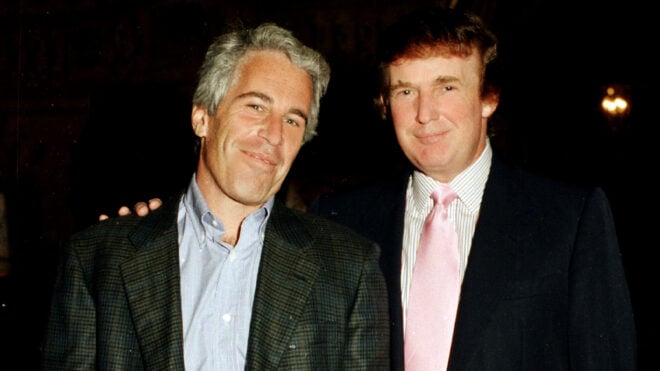
Monica Lewinsky is no stranger to online criticism and mockery. But of all the critics she's faced throughout her life, one of the hardest to deal with has been herself. In a recent essay penned for Today.com, Monica opened up about self-bullying and her “Stand Up to Yourself” campaign. The criticism she faced from others and the way she talked about herself go hand in hand, because she realized she internalized the way others spoke about her.
Monica calls herself "patient zero" when it comes to online bullying. The fact that she has been able to push past all of the criticism and do something positive is surprising to many, including herself.
Monica rose to fame in 1998 after it was revealed she and President Bill Clinton had an affair while she was a White House intern.
In an interview published in The Guardian, Monica admitted that sometimes she's surprised that she survived. "I have a friend who, every time I see her, at some point in our hangout, she’ll just sort of shake her head and go: 'I can’t believe you’re still here.' I feel very grateful for whatever combination of positive and negative traits I have that allowed me to survive," Monica said.
More from LittleThings: Actress Julia Ormond Sues Harvey Weinstein For Sexual Assault: 'Painful Memories'
The reason she calls herself "patient zero" is because her reputation was destroyed publicly pre-social media. Now it's common to come across hateful comments and memes online, but the lack of social media at the time didn't stop strangers on the internet from attacking Monica. "I went to bed one night in 1998 a private person and awakened the next day instantly public, known around the globe," she wrote in her essay. "It might have been before social media, but trust me that news websites, comment sections and chat rooms could do a lot of damage (not to mention the jokes passed around like memes via email)."
"Though I’d lost my online reputation before social media was even invented, I still encountered a tsunami of hate," she continued. Her life became public in a way that was much more surprising at the time than it is today. In her essay, she wrote about how "social media has changed everything," including the way we perceive ourselves.
October is Bullying Prevention Month, and Monica's new campaign focuses on the way we speak to ourselves. She explained that she was inspired by a seminar she attended more than a decade ago. "In one exercise, they put us in a group of three people and asked us to write down a list of all the negative things that the voice in our head said to us. It was an easy assignment because I could effortlessly write page after page of negative comments," she explained.
But something more challenging happened after that: they were all asked to read what they had written to people in the group, an experience that Monica describes as "transformative." "To hear myself say out loud the things that I was saying silently brought me to tears. I not only recognized how cruel I was being to myself, but how I was internalizing this cruelty, too," she said.
She concluded her essay by reminding readers that we talk to ourselves every day, so the way we talk to ourselves matters. The inner critic cannot be totally silenced, she admitted, but it can be quieter. "I have worked tirelessly on my silent bully and yet my friends would probably tell you I’m still not as kind about myself as I could be," she said.
In an interview with Cosmopolitan, Monica also spoke about how social media could be impacting the way people, especially girls and women, think about themselves. "Young people are constantly seeing how much better someone else’s life might be than theirs," she said. "Young women are also experiencing bullying and harassment online and, when you add in the last several years with the pandemic — bullying didn’t stop even though the world outside people’s homes did."
She also spoke about how, in 1998, when she was publicly humiliated, her self-esteem was already lacking. The way people spoke about her at the time not only made her internalize those messages, but also reinforced the negative beliefs she already had about herself. "For me, what was so damaging was having the rest of the world reflecting—in a very loud, very public, and very permanent way—the worst things you think about yourself or fear could be true about yourself," she confessed in Cosmopolitan.




